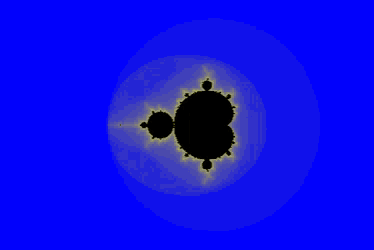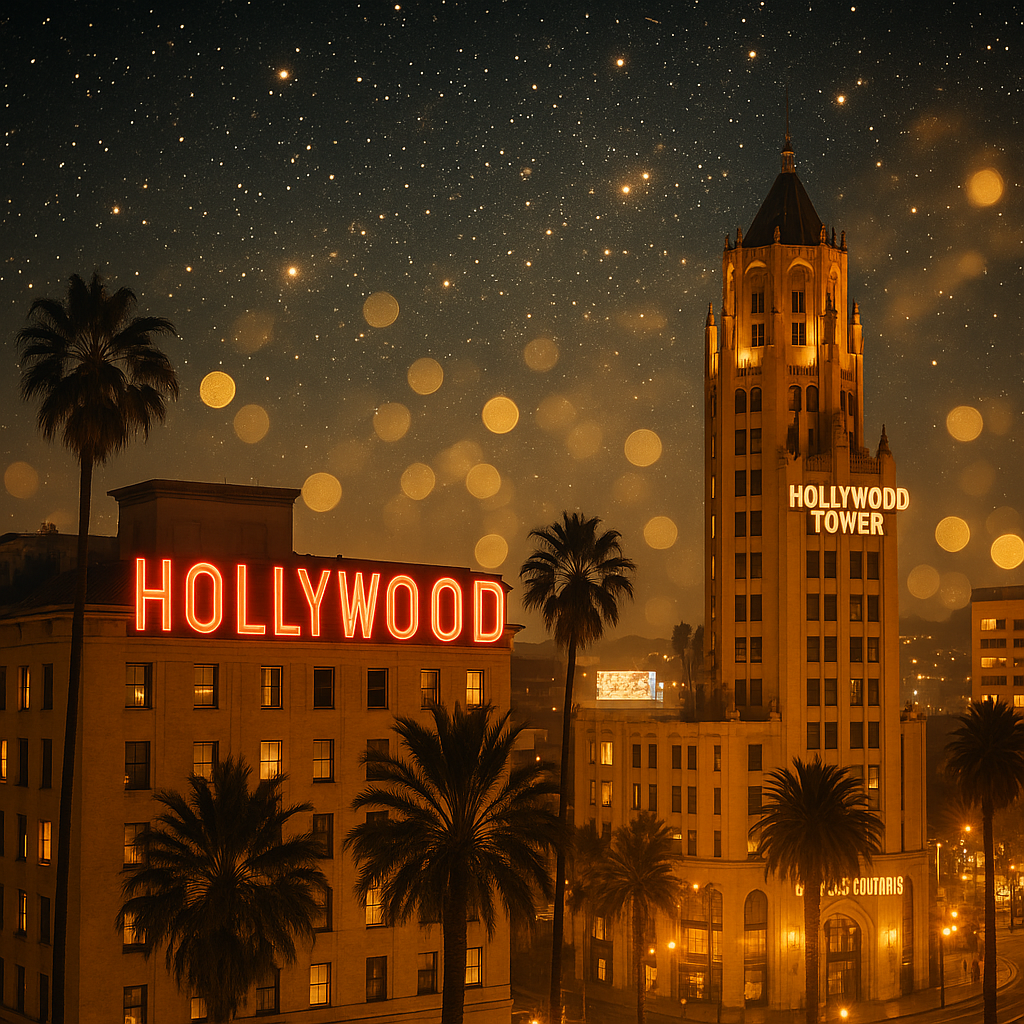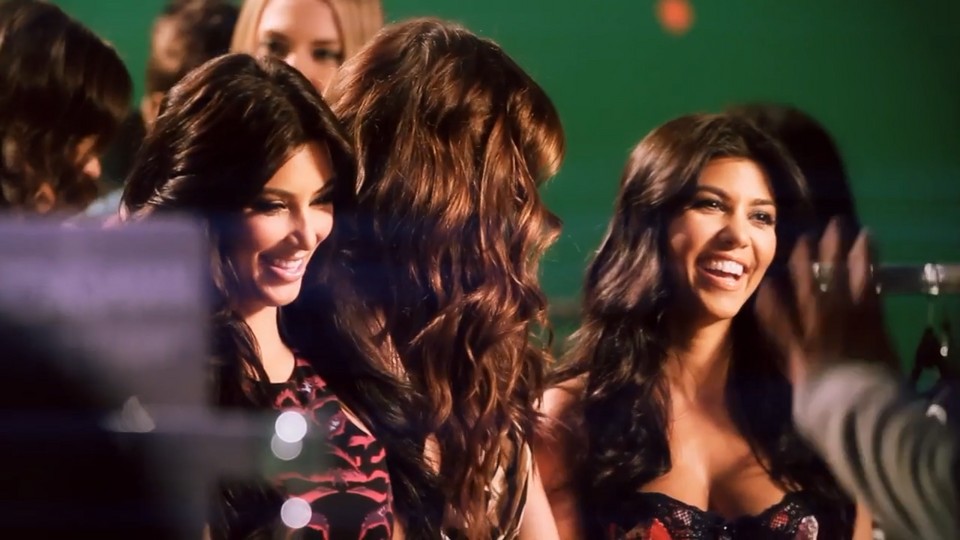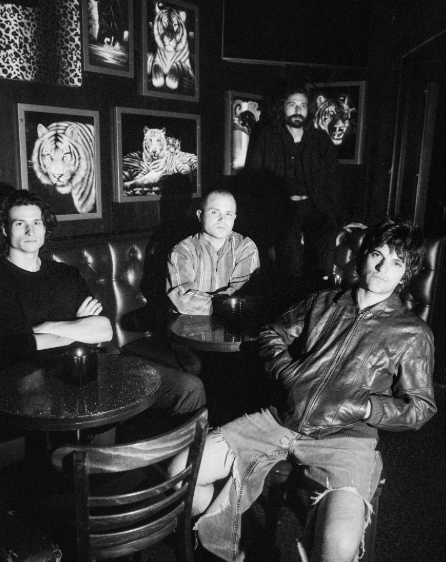
Do you remember 2012?
People were convinced that the world was going to end — that the Mayan calendar had predicted it more than 2,000 years earlier. Protesters and time-travelers continued to decry the cataclysmic dangers of CERN’s Large Hadron Collider, where scientists were taking apart the building blocks of the universe to understand how they worked…
But those scientists discovered the particle they were looking for without any apparent disruption to the fabric of reality. And so the year passed without the world flipping on its axis or neutrinos suddenly becoming deadly while John Cusack raced to save his children.
Did you laugh, then, at the people who predicted doom? Did you mock them? And how have things been for you lately? Because for most of the world they’re increasingly chaotic and incomprehensible — suffused with a growing sense of unreality.
People and events have stopped making sense. Almost as if the predictable order of the universe is unraveling…
After going on an incoherent rant about the lab leak theory, @jonstewart brokenly admitted: “I have been alone so long.”https://www.popdust.com/jon-stewart-2653408201.html?utm_campaign=RebelMouse&share_id=6535878&utm_medium=social&utm_source=twitter&utm_content=POPDUSTu00a0u2026— POPDUST (@POPDUST) 1623882641
Tessica Brown’s success points to the upside of making terrible decisions.https://www.popdust.com/gorilla-glue-lady-hair-care-2653416788.html?utm_campaign=RebelMouse&share_id=6536879&utm_medium=social&utm_source=twitter&utm_content=POPDUSTu00a0u2026— POPDUST (@POPDUST) 1623950974
While it’s hard to point to a moment when things started to go wrong — do we all revert to 2012? — it’s easy to say when life was less weird.
But the weirdness seems to be accelerating at such an incredible rate that the answer to that question changes at shorter and shorter intervals.
Things were less weird before 2013, when we got a new pope without the old one dying — resulting in two popes plotting against each other. Things were less weird before 2016, when Donald Trump was elected president. Before Trump made sweet, passionate love to the American flag on live TV.
Before 2018, when school shooting survivors became instant celebrities and then despised by half the country. Before 2021…before the coronavirus pandemic.
Before QAnon candidates. Before Kanye ran for president. Before Rudy Giuliani in Borat 2 and Rudy Giuliani at Four Seasons Total Landscaping. Before Elon Musk hosted SNL and before he and Grimes named their baby X Æ A-Xii. Before Jeff Bezos announced his plans to go to space…
In short, everything has gotten so f***ing weird. But why? What is the origin? It’s as if humanity has lost its grip on reality… or reality has lost its grip on us.
He points to a number of supposed “Mandela effects” and an anonymous CERN “whistleblower” on 4Chan as evidence that we have left our familiar reality. But while the particulars of his theory and his evidence may not hold up to scrutiny, there’s a kernel of truth in Hinton’s vision that’s only gotten more compelling in the 16 months since he wrote it.
With that in mind, I developed an alternate explanation for the accelerating weirdness of the world.
Back in 2012, the Higgs Boson was still theoretical. It was thought to mediate the quantum field responsible for providing particles their mass, thus regulating the force of gravity. And beneath the border of France and Switzerland, scientists at the European Organization for Nuclear Research (CERN) were using their enormous and massively powerful particle accelerator to find it.
They were hoping to improve our understanding of Gravity. The weakest of the fundamental forces, yet potent enough to puncture the fabric of the universe — creating a black hole from which even light cannot escape. As familiar as it is mysterious.
At the quantum level, the mechanics of gravity remain vague, and events are theorized to take place not as a result of ordinary cause and effect but as a function of probabilities. A popular explanation for this is that every possible outcome takes place, but splits off into an endlessly branching multiverse.
The Many Worlds of the Quantum Multiverse | Space Time | PBS Digital Studioswww.youtube.com
In that sense, there would be countless versions of the Earth, the Berenstain Bears, and you. But the vast majority of those versions would likely be clustered together around the most probable outcomes.
What if that cluster was held together by the force of gravity? What if the people decrying the power of the Large Hadron Collider were right to be worried?
The scientists at CERN were messing with forces beyond their control — beyond their understanding. So maybe they did trigger a doomsday scenario — one that we couldn’t see.
Three weeks after they announced the discovery of the Higgs Boson, the sun shot out the largest solar flare in more than a century. If it had struck the Earth, it would have caused trillions of dollars of damage to electronics worldwide. It missed us by the astronomical equivalent of inches. That was just the beginning.
Could it be that they ruptured our universe’s quantum gravitational bond to that core of probable realities? That we have been drifting further and further from its center ever since — into improbable events?
If so, we’re now either living at a frayed end split off from the central strand of the multiverse — waiting to be pruned. Or are we doomed to spiral off in an endless fractal of increasing absurdity? Each year more ridiculous than the last. An eternal apocalypse of strangeness.
Once I’d had this thought, I couldn’t let it go. It seems far-fetched at first, but is it more absurd than the notion that millions of Americans subscribe to a conspiracy theory that places every celebrity and politician in an elite cabal of satanic, pedophile cannibals? And that America would elect legislators who believe that?
The more I thought about it, the more I began to see the evidence in every improbable headline. I’ve started to perceive our hyper-dimensional drift in the erratic behavior of my fellow citizens.
I know now why they deny the overwhelming evidence of COVID-19’s death toll (over 7 million worldwide) or blame its spread on face masks, 5G, and pharmaceutical companies. I get it.
It’s not that they’re unhinged from reality. Reality is unhinged, and they’re adapting to it.
Once you embrace this fundamental truth, the world starts to make sense. The rapid acceleration of strangeness is no longer a mystery. But three questions remain:
How much further can our reality stray from the realm of probable events? What happens when we’ve been stretched too far? And when is it time to start buying lottery tickets?
- This Haunts Me: Timbaland and Daughtry Once Made a Song Together – Popdust ›
- Jeff Bezos is Going To Space … Good Riddance – Popdust ›















